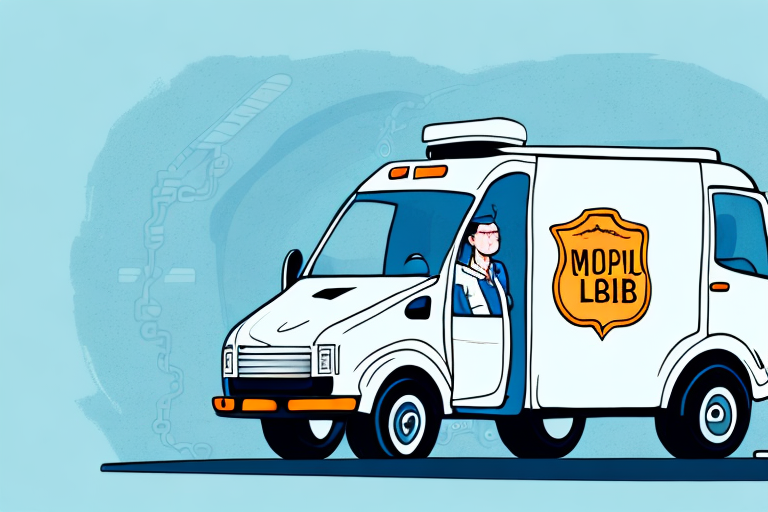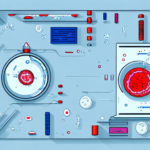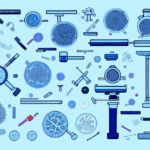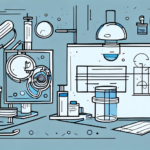What is a Lab Courier Driver?
A lab courier driver is a professional specialized in transporting and delivering medical specimens and laboratory samples. These drivers play a crucial role in healthcare by ensuring that samples reach laboratories timely and safely, facilitating accurate diagnosis, treatment, and research.
Lab courier drivers are typically employed by hospitals, medical laboratories, research facilities, and specialized logistics companies. Their responsibilities include picking up samples from various healthcare locations and delivering them to their destinations while adhering to strict protocols to maintain sample integrity.
Effective lab courier drivers possess strong local knowledge, enabling them to navigate efficiently through traffic and complex routes. They also utilize specialized equipment such as coolers, dry ice, and biohazard containers to handle different types of specimens securely.
Essential Skills for Lab Courier Drivers
- Excellent Driving Skills: Proficient in handling various vehicle types and navigating different traffic conditions.
- Communication Skills: Effectively communicate with laboratory staff, clients, and healthcare professionals.
- Attention to Detail: Accurately handle and label specimens to prevent contamination or misplacement.
- Organizational Skills: Efficiently plan routes and manage time to ensure timely deliveries.
- Customer Service Skills: Maintain a professional and courteous demeanor when interacting with clients.
- Knowledge of Safety Protocols: Understand and adhere to procedures for handling hazardous or sensitive materials.
Educational Requirements for Lab Courier Drivers
Most employers require a high school diploma or a GED certificate for lab courier driver positions. While a post-secondary degree is not typically necessary, having additional certifications related to healthcare or transportation can be advantageous.
- Valid Driver’s License: A clean driving record and a valid driver's license are mandatory.
- Clean Driving Record: Employers prefer candidates with no history of traffic violations or accidents.
- Additional Certifications: Certifications in handling biohazard materials or specialized training in medical logistics can enhance employability.
Physical Requirements for the Job
Lab courier drivers must meet certain physical demands to perform their duties effectively:
- Physical Fitness: Ability to stand, lift, and move objects, as well as handle specimens safely.
- Temperature Tolerance: Comfortable working in varying environmental conditions, such as hot or cold climates, especially when transporting temperature-sensitive samples.
- Hand-Eye Coordination: Required for navigating tight spaces and handling delicate specimens.
- Spatial Awareness: Essential for maneuvering through busy streets and securing samples properly within the vehicle.
- Time Management: Ensuring that samples are delivered promptly and in the correct order.
Duties and Responsibilities of a Lab Courier Driver
- Collecting and Delivering Specimens: Safely transporting medical specimens from healthcare facilities to laboratories and vice versa.
- Maintaining Sample Integrity: Ensuring specimens are stored and transported under appropriate conditions to prevent contamination or degradation.
- Updating Records and Tracking Shipments: Keeping accurate logs of deliveries and using tracking systems to monitor shipment statuses.
- Communication: Coordinating with laboratory personnel and clients to confirm pickup and delivery times or address any issues.
- Vehicle Maintenance: Keeping the delivery vehicle clean and organized to prevent sample contamination and ensure the vehicle is in good working condition.
- Adhering to Safety Protocols: Following all safety guidelines related to the handling and transportation of hazardous or biohazard materials.
Tips for a Successful Career as a Lab Courier Driver
- Develop Excellent Driving Skills: Continuously improve your driving abilities and stay updated on traffic laws and road changes.
- Enhance Communication Skills: Foster clear and effective communication with clients and laboratory staff to ensure smooth operations.
- Master Time Management: Prioritize tasks and plan routes efficiently to meet delivery deadlines consistently.
- Stay Reliable and Punctual: Consistently deliver samples on time to build trust with employers and clients.
- Understand the Medical Industry: Gain knowledge of medical terminology and laboratory procedures to handle specimens appropriately.
- Maintain Professionalism: Exhibit a professional demeanor in all interactions to foster positive relationships.
A Day in the Life of a Lab Courier Driver
A typical day for a lab courier driver involves:
- Morning: Starting the day by checking the delivery schedule and preparing the vehicle with necessary equipment such as coolers and biohazard containers.
- Sample Collection: Picking up specimens from various healthcare facilities, ensuring each sample is properly labeled and stored.
- Transportation: Navigating through the local area, avoiding traffic delays, and maintaining the required temperature and safety conditions for each specimen.
- Delivery: Delivering samples to designated laboratories, updating delivery logs, and communicating with lab personnel about the arrival of specimens.
- End of Day: Reviewing the day's deliveries, ensuring all specimens have been properly accounted for, and preparing for the next day's schedule.
Salary Expectations and Employment Opportunities for Lab Courier Drivers
As of 2023, the average annual salary for a lab courier driver in the United States is approximately $38,000, with salaries ranging from $25,000 to $60,000 depending on factors such as experience, location, and employer (Bureau of Labor Statistics).
Employment opportunities for lab courier drivers are available in various settings, including:
- Hospitals and medical centers
- Private medical laboratories
- Research institutions
- Healthcare logistics companies
The demand for lab courier drivers is expected to grow in line with the expanding healthcare and research sectors. Advanced logistics systems and increased focus on timely specimen delivery contribute to consistent employment opportunities in this field.
Advantages and Disadvantages of Being a Lab Courier Driver
Advantages
- Flexible Schedules: Many positions offer flexible working hours, which can be ideal for those seeking work-life balance.
- Independent Work: Lab courier drivers often work independently, providing a sense of autonomy.
- Makes a Difference: Contributes directly to patient care by ensuring timely and accurate delivery of critical medical specimens.
- Exploring Different Areas: Opportunity to travel to various locations, enhancing local knowledge and providing variety in daily routes.
Disadvantages
- Exposure to Hazards: Risk of handling potentially contagious or hazardous specimens requires strict adherence to safety protocols.
- Traffic and Weather Conditions: Navigating heavy traffic or adverse weather can be stressful and impact delivery times.
- Long Hours: Some positions may require working extended hours, weekends, or holidays, which can affect personal life.
- Physical Demands: The job may involve lifting and moving heavy or delicate samples, which can be physically taxing.
Common Challenges Faced by Lab Courier Drivers
- Handling Delicate or Dangerous Samples: Requires careful handling to prevent damage or contamination, adhering to strict protocols.
- Dealing with Heavy Traffic: Navigating congested routes can lead to delays and increased stress.
- Working Irregular Hours: Shift work, including nights, weekends, and holidays, may be necessary to meet delivery schedules.
- Maintaining Adherence to Safety Protocols: Ensuring all procedures are followed meticulously to prevent accidents or sample spoilage.
- Dealing with Emergency Situations: Handling unexpected incidents such as vehicle breakdowns, spills, or accidents involving hazardous materials.
How to Find Open Positions as a Lab Courier Driver
- Online Job Boards: Utilize platforms like Indeed, LinkedIn, and Glassdoor to search for lab courier driver positions.
- Local Hospitals and Laboratories: Visit the career pages of local healthcare institutions and private laboratories to find job postings.
- Logistics Companies: Apply directly to companies specializing in medical logistics and transportation services.
- Employment Agencies: Contact agencies that focus on healthcare or transportation roles to access exclusive job listings.
- Networking: Attend healthcare industry events, job fairs, and professional gatherings to connect with potential employers.
- Company Websites: Check the careers section of large logistics or transportation companies for available positions.
Interview Tips for Aspiring Lab Courier Drivers
- Highlight Driving Skills: Emphasize your driving experience, clean driving record, and familiarity with local routes.
- Showcase Communication Skills: Demonstrate your ability to effectively communicate with clients and laboratory staff.
- Demonstrate Attention to Detail: Provide examples of how you ensure accuracy in handling and delivering specimens.
- Discuss Time Management: Explain your strategies for planning routes and managing schedules to meet delivery deadlines.
- Emphasize Flexibility: Illustrate your ability to adapt to changing routes, schedules, and unexpected situations.
- Commitment to Safety: Highlight your knowledge of safety protocols and procedures for handling hazardous materials.
- Knowledge of the Area: Discuss your familiarity with local geography and traffic patterns to enhance delivery efficiency.
Career Advancement Opportunities in the Field of Laboratory Logistics
Lab courier drivers can pursue various paths for career advancement within the laboratory logistics sector:
- Additional Training and Certification: Obtain certifications related to hazardous material handling or advanced logistics management to qualify for higher positions.
- Specialization: Focus on niche areas such as transporting highly sensitive samples or managing the logistics of large medical research projects.
- Management Roles: Advance to positions like logistics supervisor, where you can oversee teams of drivers and coordinate delivery operations.
- Supply Chain Management: Move into broader roles that involve managing the entire supply chain process for medical specimens and laboratory equipment.
- Healthcare Administration: Transition into administrative roles within healthcare institutions, leveraging your logistics experience.
The Future Outlook for the Lab Courier Industry
The lab courier industry is poised for steady growth, driven by the increasing reliance on timely and accurate medical testing and diagnostics. According to the Bureau of Labor Statistics, employment in transportation and material moving is expected to grow, reflecting the ongoing demand for efficient logistics in healthcare and research sectors.
Advancements in logistics technology, such as route optimization software and real-time tracking systems, are enhancing the efficiency and reliability of lab courier services. Additionally, the expanding fields of biotechnology and personalized medicine are contributing to the need for specialized transportation of biological specimens.
As healthcare continues to evolve, the role of lab courier drivers remains vital, ensuring that critical samples are delivered promptly and safely, thereby supporting advancements in medical research and patient care.
In conclusion, becoming a lab courier driver is a rewarding and challenging career path offering stable employment and opportunities for advancement within the healthcare logistics field. By developing the essential skills, obtaining necessary certifications, and gaining experience, you can thrive in this essential role, contributing to the efficiency and effectiveness of medical services.






















